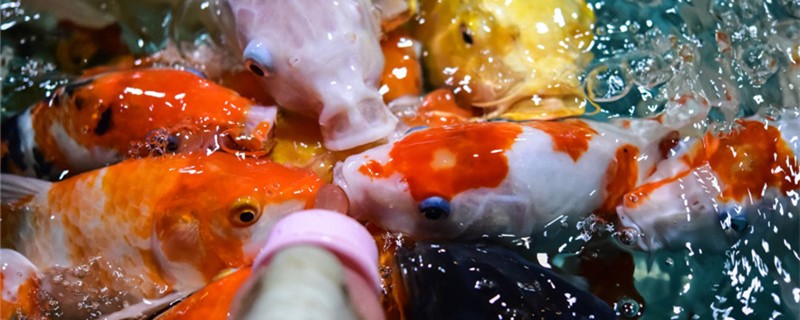
Koi's adaptability is relatively strong, and the adaptability to water temperature is also relatively strong. So, in the winter, unless the water temperature is very low, it is possible to spend the winter outdoors. Even when the surface is frozen, they can survive the winter as long as the ice is not too thick. However, there are also some problems that need to be paid attention to when wintering.
1. Feeding: With the decrease of temperature, it is necessary to gradually adjust the feeding. When the temperature is very low, the metabolism of koi fish will slow down, their digestive system will slowly stop, if they are fed at this time or even too much, they will remain in their digestive system. So, when the temperature is below 15 degrees, you can slowly reduce the amount of feeding. At 12-13 degrees, you can stop feeding.
2. Change the water: When the temperature is relatively low, it is not necessary to change the water so frequently. As long as the water is not dirty, you can not change the water. In order to maintain water quality, the filter can be opened, but the water must not be changed too frequently.
3. Temperature difference between day and night: In winter, if the temperature difference between day and night is too large, it is easy to cause the death of koi. For deeper underground fish ponds, there is generally no problem. If it is an open-air fish pond or an outdoor fish tank, you need to do a good job of shielding the wind, or directly wrap the whole fish tank with plastic boards.
4. Freezing problem: If the surface of the water is frozen, generally do not worry, because the temperature in the depths will be higher. At this point, you need to poke a few holes in the ice to let the koi breathe. However, if in very northerly areas, the temperature in winter is more than ten degrees below zero or even tens of degrees, it can not be cultured outdoors.